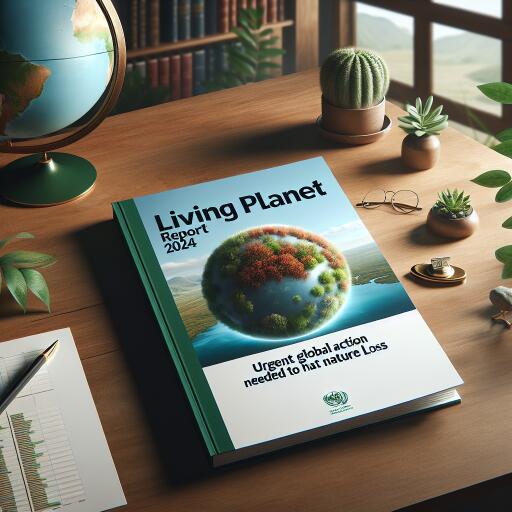
WWF’s Living Planet Report 2024 calls for urgent global action to stop nature loss – BBSCL
The World Wildlife Fund’s latest Living Planet Report unveils a stark reality: a dramatic decline by over 70 percent in wildlife populations over the past half-century. This alarming revelation underscores a growing ecological emergency as nature loss and climate change approach potential irreversible thresholds.
Between 1970 and 2020, a comprehensive analysis by the Zoological Society of London tracked nearly 5,500 wildlife species. The findings are troubling, with freshwater ecosystems suffering the gravest impact, enduring an 85 percent reduction. Terrestrial ecosystems have decreased by 69 percent, and marine environments have faced a 56 percent drop.
The report cautions that dwindling wildlife numbers signal heightened risks of species extinction and potentially catastrophic ecosystem breakdowns. These ecosystems are indispensable as they offer critical services, including clean air, water, and arable soil. Global tipping points, such as the deterioration of the Amazon rainforest and the bleaching of coral reefs, pose substantial threats to food security and human livelihoods.
In Bhutan, despite achievements in conservation, emerging concerns focus on diminishing freshwater resources, erratic weather patterns, and shifts in wildlife habitats.
Earlier this year, the WWF Bhutan conducted a perception survey targeting Jigme Dorji National Park and Jomotsangkha Wildlife Sanctuary. The study aimed to evaluate the consequences of climate change on local wildlife and communities. The majority of participants indicated that changes in climate have adversely impacted biodiversity, particularly affecting wildlife in Jigme Dorji National Park.
Likewise, many residents in the Jomotsangkha Wildlife Sanctuary observed that wildlife species are relocating due to climate change, habitat destruction, and food scarcity.
A 2021 evaluation by the Watershed Management Division revealed troubling trends: over 25 percent of the 500 sub-watersheds are experiencing drying, with almost 1 percent completely parched due to climate change and forest degradation.
The Global Biodiversity Framework and the Paris Agreement set forth international objectives for countries to counteract nature destruction and restrict the global temperature increase to 1.5 degrees Celsius. Yet, the Living Planet Report emphasizes that current national initiatives fall short of meeting the 2030 targets and averting critical tipping points.
This situation urges immediate and concerted global action to preserve biodiversity and stabilize the climate. The call to action is clear: Without robust intervention, the world risks profound ecological and societal upheaval.





Leave a Reply